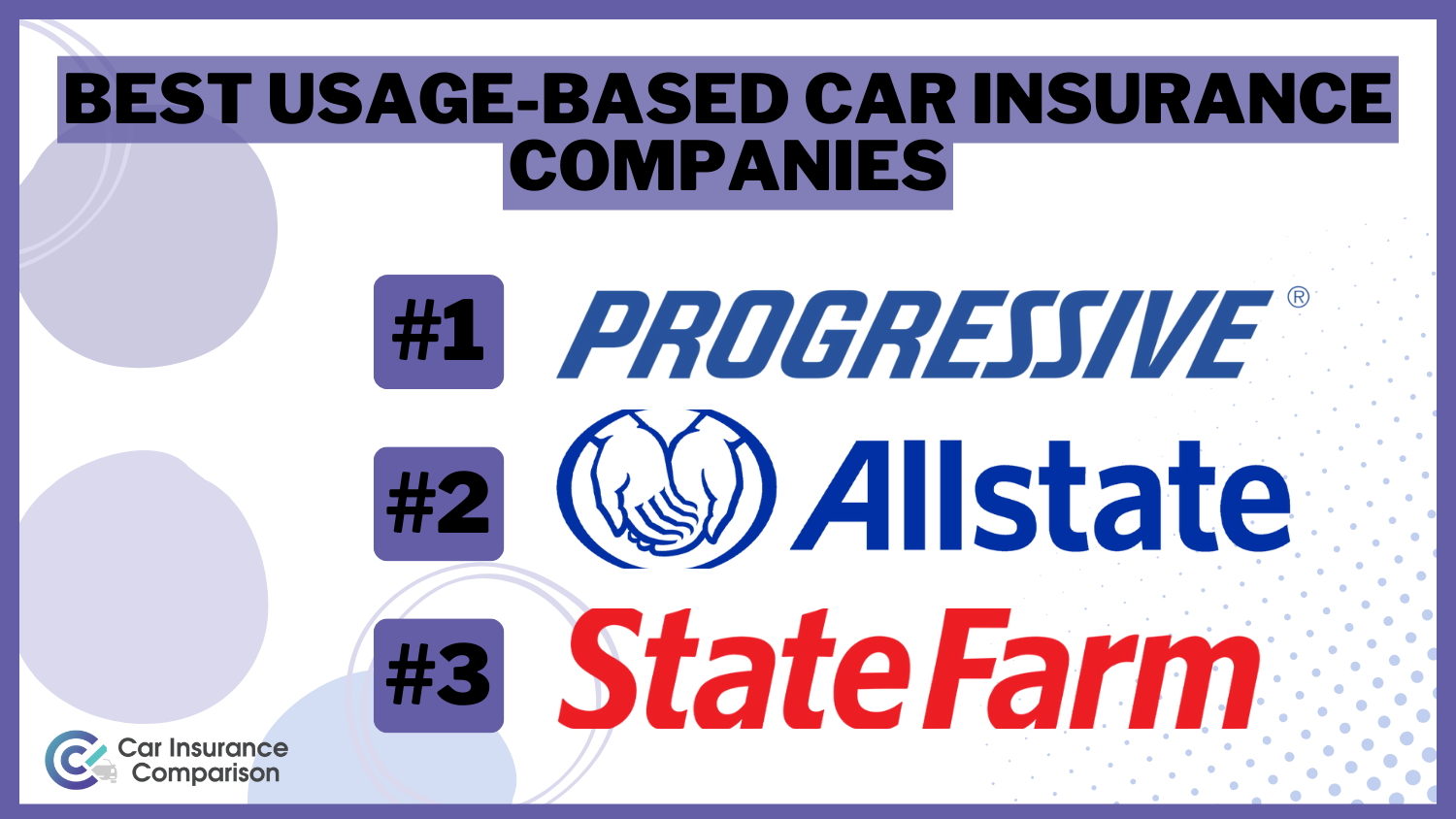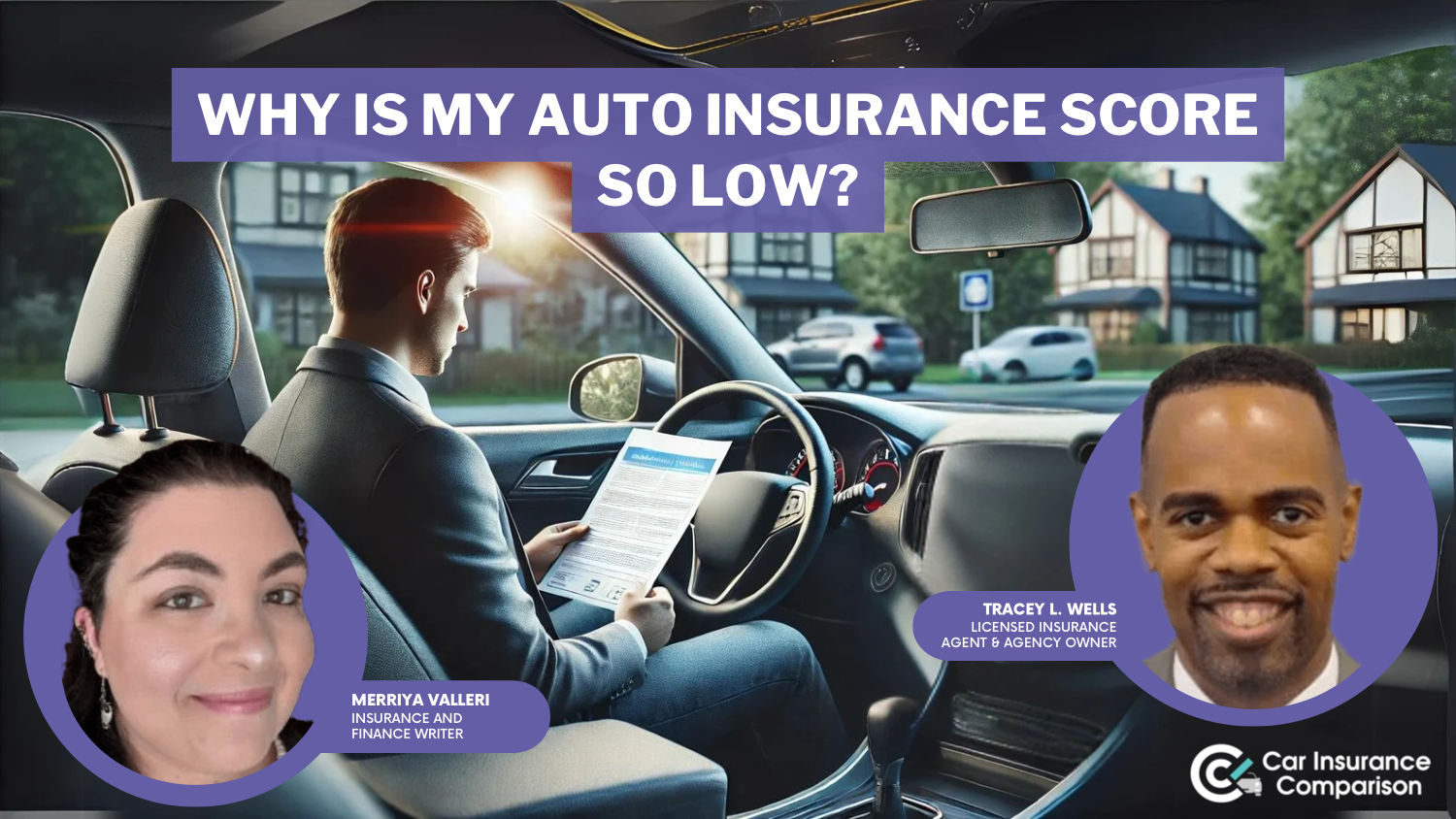Do car insurance companies share information?
Car insurance companies share information using the CLUE database, which contains data about drivers' policies, claims, and driving histories.
Secured with SHA-256 Encryption





Table of Contents
Table of Contents


Insurance and Finance Expert
Laura Gunn is a former teacher who uses her passion for writing and learning to help others make the best decisions regarding finance and insurance. After stepping away from the classroom, Laura used her skills to write across many different industries including insurance, finance, real estate, home improvement, and healthcare. Her experience in various industries has helped develop both her ...
Laura Gunn


Licensed Insurance Agent
Brandon Frady has been a licensed insurance agent and insurance office manager since 2018. He has experience in ventures from retail to finance, working positions from cashier to management, but it wasn’t until Brandon started working in the insurance industry that he truly felt at home in his career. In his day-to-day interactions, he aims to live out his business philosophy in how he treats hi...
Brandon Frady
Updated September 2024
Car insurance companies compete against one another for market share. Most companies want to acquire the most market share, but there are a few that care less about market share and more about premiums.Unlike some other competitors who focus on keeping information on their clients secret, competitors in the insurance marketplace share information.Car insurance carriers don’t just share information to be nice. By entering relevant rating information into an exchange database, every company benefits.In fact, many state departments that oversee the insurance division require any carrier licensed to sell products to report a minimum amount of information to a database used nationwide.Use our FREE tool to compare car insurance quotes now! Enter your zip code to get started!
- When you apply for insurance, the company you’re applying with will run several inquiries to verify information
- If you’re just soliciting quotes, it’s not common for companies to run verification reports because it costs money
- Almost all of the big-name car insurers communicate with each other by reporting information in the CLUE database
- The CLUE database includes information on policies carried the by applicant, claims, and cancellations
- Some carriers will ask the applicant to request a Claims History letter if you claim that the CLUE report has an error
Why does sharing information benefit all insurance companies?
Insurance companies aren’t going to voluntarily give their competitor information on how to contact their customers. This practice wouldn’t make much sense.However, it does make sense for all of the providers to share information after the customer has already started to solicit quotes.It’s beneficial for all insurers to voluntarily participate in an information exchange because it helps the company that’s reviewing the application charge the right rates for car insurance coverage.The underwriter who has the file on their desk will be able to see if the applicant has been honest or if rating factors need to be changed. Since all companies have access to the same system, it evens the playing field.
Free Insurance Comparison
Compare Quotes From Top Companies and Save
Secured with SHA-256 Encryption
What types of rating factors are affected by reports?
There are more than just a couple rating factors that companies use when they are coming up with your final rate. Some of the factors are well known but there are also other factors that consumers have no clue have an effect on rates.
If someone is dishonest in their application because they want to try and save money, they could be taken by surprise when their quote goes up by 20 or 40 percent.
Not everything is verifiable but companies can find out a lot more than an applicant may know.Some factors that can be affected by details on verification reports include:
- At-fault accidents that are still chargeable but weren’t listed on the application
- Multiple non-fault accidents that can change risk class from preferred to standard
- Drivers who’ve had claims in the insured vehicle but aren’t listed on the new application
- Cancellation dates that show that the policyholder had a lapse in coverage
- Inception and cancellation date that represents how long the insured has been with the carrier
What type of system do car insurance companies report to?
Auto insurance carriers report to a database that’s called C.L.U.E. The acronym stands for Claims Loss Underwriting Exchange.The database can be accessed by all carriers with accounts and by drivers who order their own personal records.Generally speaking, a C.L.U.E. record is updated when claims are filed, settled, and closed.
Does ordering a C.L.U.E. report cost the insurer money?
It would be nice for the insurer that is conducting business if ordering a C.L.U.E. report was free.Unfortunately for companies, the agency in charge of reporting this consumer information, which goes by the name LexisNexis, is a for-profit company that makes more maintaining and reporting information.This is why all companies have to pay for records.
Free Insurance Comparison
Compare Quotes From Top Companies and Save
Secured with SHA-256 Encryption
How do car insurance companies order C.L.U.E. records?
Ordering the actual record isn’t difficult at all. Some companies will give their agents the authority to order C.L.U.E. reports as they are finalizing an application.Other carriers only hand over authority to run these reports to the underwriters who assess the applications.Carriers will have an internal system to order records. Many times, the system is built into the quoting tool to ensure that everything is pre-populated into the report request easily.The form may ask for the policyholder name, address, vehicle identification number, and/or a driver’s license number. If you’re ordering your own report, you can order it online or by mail.
What happens if the information on the report is incorrect?
Mistakes are made from time to time. If the person in charge of inputting information accidentally labels an accident as at-fault instead of not at fault, the policyholder could face some hassles when they switch companies. Since carriers have to go by what’s on the record, they will have to request paperwork to change what’s already in the file.In most cases, the insurance company verifying the application will ask one or both of the policyholders on file to get paperwork from the old carrier saying that the record is an error.If you’re trying to get the file updated, ask the company that reported the information for a Letter of Experience. Keep copies of this letter so you always have proof.
What other information will the car insurance company verify?
Verifiable information goes past the information that the old carrier can provide. Companies also need to check each driver’s motor vehicle record to see if there are unlisted infractions.
If you have a minor infraction within the last 36 months or a major violation within the past 5 to 7 years, all of that needs to be disclosed.
Read More: What questions do car insurers ask?
In states where credit is used to make decisions on insurance premiums, the carriers will order credit-based insurance scores. Just like the C.L.U.E reports, the requests need to be made through LexisNexis.The score can affect the policyholder’s rate.Be honest when you’re filling out your application. It’s even important to enter all of your information accurately in the quote form.If you want to get instant quotes right now, use an online brokerage style tool for free and you can compare the rates through all of the biggest competitors.Enter your zip code in our FREE tool below to compare car insurance rates now!
Free Insurance Comparison
Compare Quotes From Top Companies and Save
Secured with SHA-256 Encryption
Case Studies: Do car insurance companies share information?
Case Study 1: CLUE Database Reporting
John recently switched car insurance companies. During the application process, his new insurer ordered a CLUE report to assess his claims and driving history. The report showed John’s previous insurance policies, claims filed, and any relevant driving infractions. The information in the CLUE report allowed the insurance company to accurately determine John’s insurance rates and coverage.
Case Study 2: Incorrect Information on the Report
Sarah had a minor at-fault accident in the past, but it was incorrectly recorded as a not-at-fault accident in her CLUE report. When Sarah applied for car insurance with a new company, they found the discrepancy in the report. The insurance company requested paperwork to rectify the error and update the record. Sarah had to provide a Letter of Experience from her previous insurer to prove the mistake.
Case Study 3: Impact on Insurance Premiums
Michael had a history of multiple claims in his CLUE report. When he applied for insurance with a new company, they reviewed his claims history and determined that he was a higher insurance risk. As a result, Michael’s insurance premiums were higher compared to someone with a clean claims history.

Frequently Asked Questions
Do car insurance companies share information?
Yes, car insurance companies share information using the CLUE database, which contains data about drivers’ policies, claims, and driving histories.
Why does sharing information benefit all insurance companies?
Sharing information through the CLUE database benefits insurance companies by allowing them to review an applicant’s history and accurately determine appropriate rates for car insurance coverage. It ensures fairness and helps maintain a level playing field for all insurers.
What types of rating factors are affected by reports?
Reports can impact various rating factors that influence insurance rates. Some factors affected by details on verification reports include the number and severity of past claims, driving history, previous policy cancellations, and any relevant violations or infractions.
What type of system do car insurance companies report to?
Car insurance companies report to a database called C.L.U.E. (Claims Loss Underwriting Exchange). This database is accessible to all insurance carriers with accounts and to drivers who order their personal records. C.L.U.E. records are updated when claims are filed, settled, and closed.
Does ordering a C.L.U.E. report cost the insurer money?
Yes, ordering a C.L.U.E. report incurs a cost for insurance companies. The agency responsible for reporting this consumer information, LexisNexis, is a for-profit company that charges fees for maintaining and reporting the information.
How do car insurance companies order C.L.U.E. records?
Car insurance companies can order C.L.U.E. records through their internal systems. Some companies give their agents the authority to order reports during the application process, while others restrict this authority to underwriters. The ordering process typically involves providing necessary details such as policyholder name, address, vehicle identification number, and/or driver’s license number.
What happens if the information on the report is incorrect?
In case of incorrect information on the report, it can cause issues for the policyholder when switching companies. The insurance company verifying the application may request paperwork to rectify the error. Policyholders may need to obtain a Letter of Experience from the company that reported the information to prove the error and update the record.
What other information will the car insurance company verify?
In addition to the information provided in the reports, car insurance companies may also verify other details. This may include checking each driver’s motor vehicle record for unlisted infractions. In states where credit is used to make decisions on insurance premiums, carriers may order credit-based insurance scores through LexisNexis.
Get a FREE Quote in Minutes
Insurance rates change constantly — we help you stay ahead by making it easy to compare top options and save.






